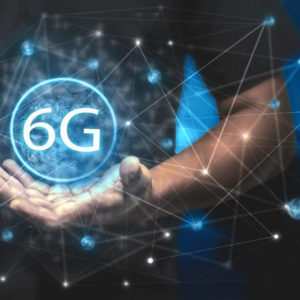Weekly News: Docomo targets 2030 6G launch
January 26, 2020
1. Docomo targets 2030 6G launch
2. Connected cars are a ‘key component’ of AT&T’s IoT strategy
3. Dish dreams big, hopes to deliver 5G internet to 70% of Americans by 2023
4. SK Telecom claims multi-vendor 5G transmission first with Ericsson and Samsung
5. Broadband Forum Takes on Carrier-Grade WiFi Challenge

Docomo targets 2030 6G launch
NTT Docomo, the largest mobile operator in Japan, began drawing up a strategy to be a leader in 6G technology, as it set its sights on a commercial launch by 2030.
The operator released a white paper outlining its views on 5G evolution and 6G communications technology, noting mobile communication systems typically evolve into the next generation over a period of about ten years.
Its report summarises related technical concepts and the expected diverse use cases of evolving 5G and new 6G communication technologies, along with the components of the technology and performance targets.
Earlier in the week, the Japanese government said it plans to develop a comprehensive strategy in the coming months on future 6G networks and set up a panel which will meet next week, The Japan Times reported.
Read more.
Connected cars are a ‘key component’ of AT&T’s IoT strategy
WASHINGTON, D.C.–AT&T has 32 million connected cars operating on its network, as well as 5 million fleet vehicles. At this week’s Washington Auto Show, Jeff Stewart, AVP for global public policy at AT&T Services, called connected vehicles “a key growth area” for the carrier, which he said has been adding vehicle connections at a rate around 1.5 million in recent quarters.
“It’s become a key component of our overall IoT business,” he added.
Stewart said in a panel discussion that AT&T provides cellular connectivity for 31 different automotive brands — “virtually almost the entire industry, at this point” — and that LTE is the primary connectivity technology and likely will be for the foreseeable future. However, he did note that due to the long life automotive life cycle, automotive manufacturers are interested in exploring 5G, next-generation cellular technology sooner rather than later, even though deployments are just beginning.
As more and more types of transportation become connected and seek to use wireless technologies to support features such as automated operation, Stewart also said that there is the potential for new synergies when it comes to infrastructure siting.
Read more.
Dish dreams big, hopes to deliver 5G internet to 70% of Americans by 2023

Dish is building a 5G network ‘from the ground up’
Dish Network said that it plans to soon release a request for information/request for proposal on telecom transport services, and revealed its intention to provide standalone 5G broadband coverage to 70% of Americans by June 2023.
The fifth in a series of RFPs for different elements of a national network, DISH’s telecom transport services RFI/RFP will reportedly include requests for telecom transport service companies to facilitate lit and dark fiber connectivity to cell towers, buildings and data centers.
In a statement, Dish EVP of Wireless Operations Jeff McSchooler said the company is in the process of building a next-generation network “from the ground up,” and applying “fresh ideas and new partners.”
“We’re seeking input from local and regional telecom transport partners as well as the national providers that have supported our existing video business for decades,” he said. “We see an opportunity to learn from nontraditional partners as well, like utilities and municipalities that may be deploying fiber in their communities. We are exploring varying transport infrastructures to support our aggressive buildout.”
Read more.
SK Telecom claims multi-vendor 5G transmission first with Ericsson and Samsung
Korean operator SK Telecom says it has managed the world’s first standalone 5G data session on a multi-vendor commercial 5G network.
Single vendor set-ups are increasingly out of fashion in the telecoms world, with the traditional wariness about vendor lock-in compounded by geopolitical uncertainty that threatens to compel the exclusions of certain vendors that shall remain nameless. So this is an important step for 5G as well as another opportunity for South Korea to virtue-signal about how cutting-edge it is when it comes to 5G.
“With the successful standalone 5G data call on our multi-vendor commercial 5G network, we are now standing on the threshold of launching standalone 5G service, a key enabler of revolutionary changes and innovations in all industries,” said Park Jong-kwan, Head of 5GX Labs at SK Telecom. “SK Telecom will offer the best 5G networks and services to realize a whole new level of customer experience in the 5G era.”
Read more.
Broadband Forum Takes on Carrier-Grade WiFi Challenge
The Broadband Forum is focused on developing carrier-grade WiFi, while it sees ongoing projects in connected home, broadband abstraction and WiFi management begin to bear fruit this year.
“WiFi has always been very effective from a consumer point of view. We have developed the first generation of a test plan of what makes a WiFi network carrier class. Now we’re working on the next release of that, a test plan,” said Robin Mersh, Broadband Forum CEO, in a call with Broadband World News. “It will build in mesh capabilities and try to get to a much more robust way of building, then deploying WiFi networks. WiFi technology problems get in the way of all those monetizing ideas [carriers] have. If you haven’t got a reliable WiFi network it can kill you.”
Carrier-grade WiFi is a newer conundrum the Forum is taking on, but several initiatives it’s tackled over the past year or two are coming to fruition this year as well, he said. “Things are becoming a little more real,” Mersh said this week. “There are a few subjects we’ve been working on where there’s been a good deal of preparatory work, where you’re starting to see things be deployed, or there are things where you’re starting to see actual plans, where real technical work is going to happen.”
Read more.
